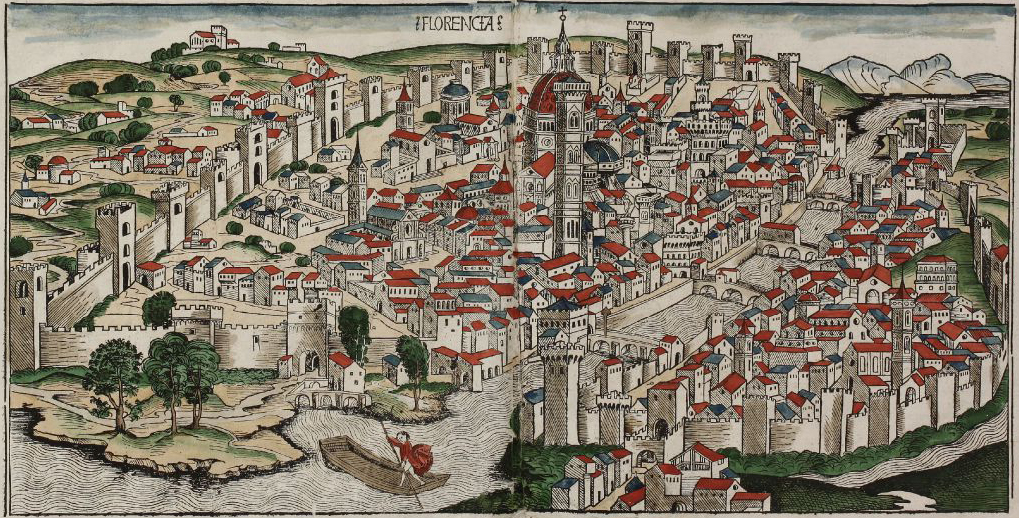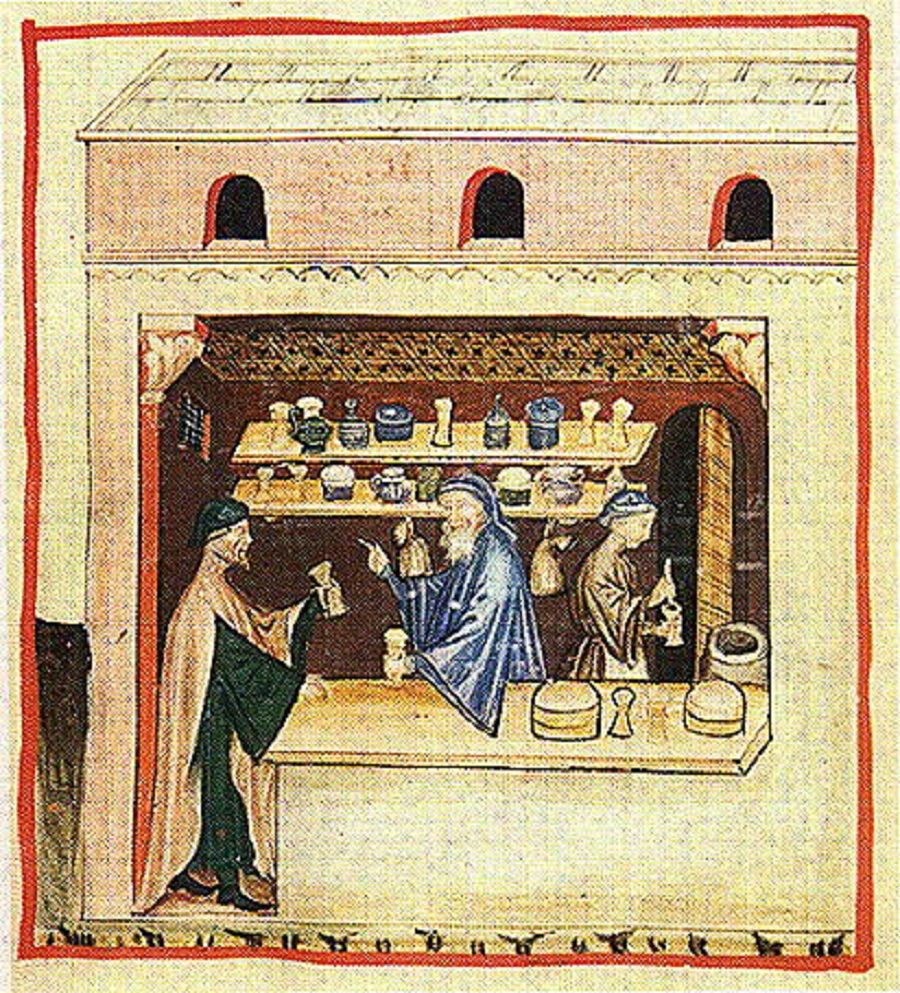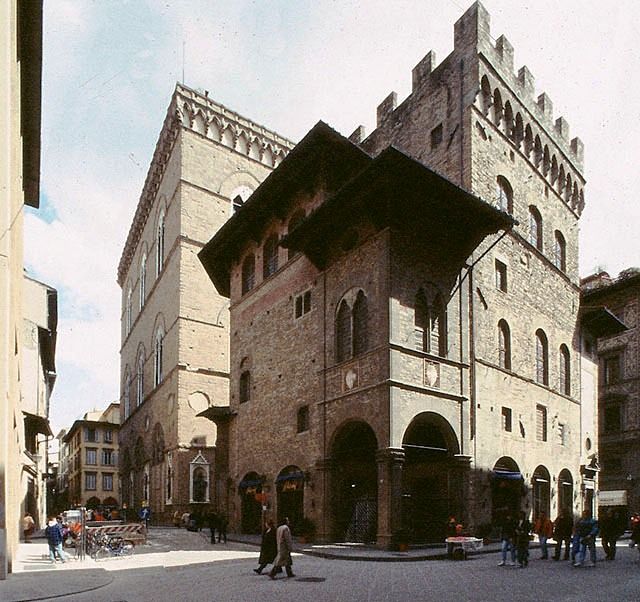Craft and Merchant Guilds
Syres is very familiar with how merchants and taxes operated, usually collected by church or state officials appointed by either the courts or the King/Caliph/Regent themselves. A cornerstone of the medieval mercantile economy, guilds were powerful and influential throughout most of the Christian world. This was vastly different than the more "capitalist" Islamic world. The Guild System of medieval Europe was full of bureaucracy, dishonesty, and danger and usually, Syres kept himself clear of any guild-related commitments. However, one of the most sophisticated guild systems existed when he visited Florence Italy in the mid-13th century.
In Florence, Italy, there were seven to twelve "greater guilds" and fourteen "lesser guilds" the most important of the greater guilds was for judges and notaries, who handled the legal business of all the other guilds and often served as an arbitrator of disputes. Other greater guilds include the wool, silk, and money changers' guilds. They prided themselves on a reputation for very high-quality work, which was rewarded with premium prices.
The guild was made up of experienced and confirmed experts in their field of handicraft. They were called master craftsmen. Before a new employee could rise to the level of mastery, he had to go through a schooling period during which he was first called an apprentice. After this period he could rise to the level of journeyman. Apprentices would typically not learn more than the most basic techniques until they were trusted by their peers to keep the guild's or company's secrets.
The guilds fined members who deviated from standards. Other greater guilds included those of doctors, druggists, and furriers. Among the lesser guilds, were those for bakers, saddle makers, ironworkers, and other artisans. They had a sizable membership but lacked the political and social standing necessary to influence city affairs. After several years of experience, a journeyman could be received as a master craftsman, though in some guilds this step could be made straight from the apprentice.
This would typically require the approval of all masters of a guild, a donation of money and other goods (often omitted for sons of existing members), and the production of a so-called "masterpiece,' which would illustrate the abilities of the aspiring master craftsman; this was often retained by the guild. The medieval guild was established by charters or letters patent or similar authority by the city or the ruler and normally held a monopoly on trade in its craft within the city in which it operated: handicraft workers were forbidden by law to run any business if they were not members of a guild, and only masters were allowed to be members of a guild.
Fun fact - guilds controlled how you advertised and priced your goods as well! If you coughed too loudly while working in your shop, or standing in your shop doorway, you could be fined or even charged by the guild for "drawing attention" to your crafts over other members. It was a very rigid way of maintaining a steady economy that Syres found comical, at some points. Individual artistic styles were snuffed out completely, unlike in the east.
Types of Guilds
- Masons
- Carpenters
- Painters
- Cloth Makers
- Tanners
- Shoemakers, or cobblers
- Apothecaries
- Candle makers
- Bakers and Brewers
- Barber-Surgeons
- Bricklayers, Wallers and Plasterers
- Butchers
- Colliers, Paviors and Carriagemen
- Coopers
- Cordwainers
- Curriers, Felt-makers and Armourers
- Glovers
- Goldsmiths
- Society of Hostmen
- House Carpenters, Millwrights Trunkmakers
- Joiners and Cabinet-makers
- Society of Master Mariners
- Masons
- Merchant Adventurers
- Milners
- Plumbers and Glaziers
- Ropemakers
- Saddlers
- Sail-makers
- Scriveners
- Shipwrights
- Skinners
- Slaters and Tylers
- Smiths
- Tanners
- Taylors
- Upholsterers
- Tin-plate workers and Stationers
- Weavers
Type
Guild, Craftsmen
Remove these ads. Join the Worldbuilders Guild













Comments